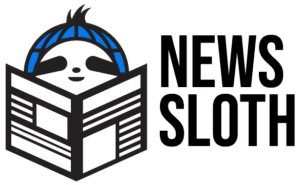AI Wars Are Already Starting—And It’s Going To Get Ugly

Elon Musk’s artificial intelligence company, xAI, has accused rival Sam Altman’s OpenAI of stealing trade secrets with the help of former Musk employees, according to new court filings.
In a lawsuit filed recently with the U.S. District Court for the Northern District of California, xAI alleges that three of its former employees passed along source code and other business secrets to OpenAI.
Two engineers and a senior executive are named in the complaint.
The complaint also claims that OpenAI is engaged in a “strategic campaign” to undermine xAI, the AI start-up founded by Musk in 2023.
“By hook or by crook, OpenAI clearly will do anything when threatened by a better innovator, including plundering and misappropriating the technical advancements, source code, and business plans of xAI,” the complaint states.
OpenAI, the maker of the popular ChatGPT chatbot, is a direct competitor to xAI’s own Grok chatbot.
The lawsuit is the latest development in the long-standing feud between Musk and OpenAI.
Musk co-founded the company but later left due to disagreements over its direction.
Musk has been increasingly critical of OpenAI as it has established an early lead in the AI race.
According to the complaint, one former xAI engineer admitted to stealing the company’s entire code base.
Another allegedly harvested xAI’s source code and transferred it to personal devices before taking it to OpenAI.
The lawsuit also accuses a former senior finance executive of delivering xAI’s “secret sauce” data center strategy to OpenAI.
xAI further alleges that the hiring of these employees was part of an intentional campaign by OpenAI to steal trade secrets.
The same recruiter was involved in poaching both engineers.
“OpenAI is targeting those individuals with knowledge of xAI’s key technologies and business plans — including xAI’s source code and its operational advantages in launching data centers — then inducing those employees to breach their confidentiality and other obligations to xAI through unlawful means,” the complaint reads.
OpenAI, founded as a nonprofit in 2015, has skyrocketed to the top of the tech world in recent years.
Its advances in generative AI have made it dominant in the field.
In March, venture capital data firm PitchBook listed its valuation at $300 billion.
Investments continue to pour in.
Recently, Nvidia announced it would invest $100 billion to help grow OpenAI’s computing capacity.
An OpenAI spokesperson responded to the lawsuit in an emailed statement.
“This new lawsuit is the latest chapter in Mr. Musk’s ongoing harassment. We have no tolerance for any breaches of confidentiality, nor any interest in trade secrets from other labs,” the spokesperson said.
The allegations reveal the cutthroat nature of the artificial intelligence industry’s current competition.
One engineer’s admission to stealing xAI’s entire code base represents massive intellectual property theft.
The systematic nature of the alleged recruitment campaign suggests coordinated corporate espionage rather than coincidental hiring.
Using the same recruiter to poach both engineers strengthens xAI’s claim of intentional targeting.
The data center strategy theft could give OpenAI significant operational advantages in building AI infrastructure.
Musk’s history with OpenAI adds personal dimension to what appears to be straightforward corporate theft.
His departure from the company he co-founded now looks prescient given these allegations.
OpenAI’s $300 billion valuation gives it enormous resources to attract talent from competitors like xAI.
The Nvidia investment of $100 billion demonstrates OpenAI’s financial dominance in the AI race.
OpenAI’s dismissal of the lawsuit as “harassment” ignores specific allegations of code theft.
Their claim of having “no interest in trade secrets” contradicts xAI’s detailed accusations.
The competition between ChatGPT and Grok represents more than just chatbot rivalry.
It’s a battle for dominance in the transformative technology of artificial intelligence.
Former employees transferring proprietary code to personal devices shows premeditation.
These aren’t accidental violations of confidentiality agreements but deliberate theft.
The finance executive’s alleged transfer of data center strategies represents business intelligence theft.
This could help OpenAI replicate xAI’s operational advantages without independent development.
Musk’s criticism of OpenAI has intensified as the company pulled ahead in AI development.
This lawsuit suggests his concerns went beyond competitive frustration to actual corporate malfeasance.
The nonprofit origins of OpenAI contrast sharply with its current $300 billion corporate valuation.
This transformation from nonprofit to tech giant may have driven the aggressive tactics xAI alleges.
